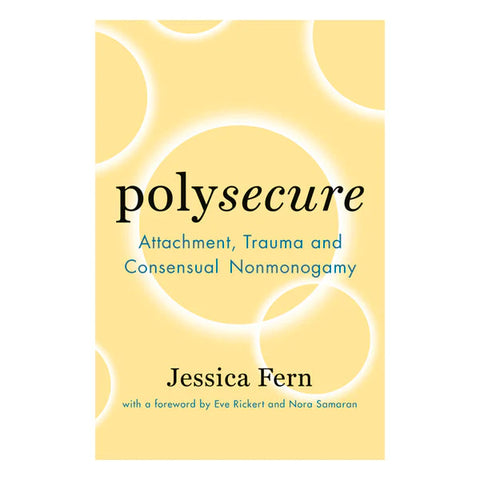
In a world that's increasingly open to diverse relationship dynamics, the topic of polyamory and non-monogamy has become more prevalent than ever before. If you're curious about exploring these alternatives to traditional monogamous relationships and want to have an honest conversation with your partner, this guide is designed to help you navigate that conversation with empathy, respect, and understanding.
Understanding Polyamory and Non-Monogamy:
Polyamory: Polyamory is the practice of having multiple consensual and open romantic relationships at the same time. These relationships can range from emotional to sexual connections, but they are all based on honesty, communication, and mutual consent.
Non-Monogamy: Non-monogamy is an umbrella term that encompasses various relationship styles beyond traditional monogamy. This includes:
-
Open Relationships: Partners agree to have sexual relationships with other people while maintaining their emotional commitment to each other.
-
Swinging: Couples engage in sexual activities with others for recreational purposes, often as a shared experience.
-
Polyfidelity: A closed group of individuals have multiple romantic and sexual relationships within the group, but not with outsiders.
-
Relationship Anarchy: Rejecting the idea of predefined relationship structures, focusing on building relationships based on individual needs and desires.
Broaching the Topic:
1. Choose the Right Time and Place: Find a comfortable and private setting where both of you can openly express yourselves without distractions.
2. Communicate Your Intentions: Clearly state your desire to discuss the possibility of exploring polyamory. Be prepared for emotional reactions, and assure your partner that your intention is to maintain open communication.
3. Educate Yourself: Prior to the conversation, familiarize yourself with the terms related to polyamory and non-monogamy. This will demonstrate that you're approaching the topic thoughtfully.
If Your Partner Says "Yes":
-
Celebrate Mutual Interest: Express your appreciation for their open-mindedness and willingness to consider the idea.
-
Set Boundaries: Establish clear boundaries and guidelines for how your polyamorous relationship will function. Regular and honest communication is essential to maintain trust and emotional safety.
-
Seek Support: Consider seeking advice from experienced polyamorous individuals, attending support groups, or reading books on the subject to better navigate this new journey.
If Your Partner Says "No":
-
Respect Their Feelings: Accept their response with respect and empathy. Understand that polyamory is not for everyone and that their feelings are valid.
-
Reevaluate Your Relationship Goals: Reflect on your own desires and whether you're willing to compromise on this aspect of your relationship for the sake of your partner's comfort and happiness.
-
Give Them Time: Give your partner time to process the idea. Revisit the topic later if they express interest in discussing it further.
If Your Partner Says "Maybe":
-
Keep the Conversation Open: Acknowledge their uncertainty and let them know that you're open to discussing the topic further whenever they feel ready.
-
Offer Resources: Share educational resources, articles, and books about polyamory and non-monogamy, so they can better understand the concept.
-
Continued Communication: Regularly check in with your partner about their feelings and thoughts. Revisit the topic as their understanding and comfort levels evolve.
Our Favorite Books to Learn More about Polyamory and Non-monogamy:
Polysecure is both a trailblazing theoretical treatise and a practical guide. It provides nonmonogamous people with a new set of tools to navigate the complexities of multiple loving relationships, and offers radical new concepts that are sure to influence the conversation about attachment theory.
A counselor and nurse specializing in polyamorous singles, couples and groupings, Kathy Labriola has spent many years helping people to understand and manage their jealousy. The Jealously Workbook is a compendium of the techniques and exercises she has developed, as well as tips and insights from the polyamory community's top educators, therapists and authors.
Considered a classic, The Ethical Slut is an essential guide for singles and couples who want to explore polyamory in ways that are ethically and emotionally sustainable. For anyone who has ever dreamed of love, sex, and companionship beyond the limits of traditional monogamy, this groundbreaking guide navigates the infinite possibilities that open relationships can offer.
In conclusion, approaching the topic of exploring polyamory or non-monogamy with your partner requires sensitivity, patience, and clear communication. Keep in mind that this journey may lead to new levels of connection and growth within your relationship, regardless of the outcome. Remember that relationships are built on trust, love, and mutual understanding, and the key to a successful conversation lies in respecting your partner's feelings while remaining open to exploring new possibilities together.






